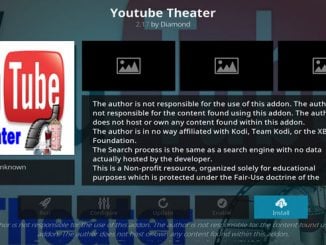
[ad_1]
 Last month, Apple removed the popular music streaming app Musi from its App Store. The removal is rather significant because the app has millions of users.
Last month, Apple removed the popular music streaming app Musi from its App Store. The removal is rather significant because the app has millions of users.
Apple's action didn't come as a complete surprise, as music industry groups had been trying to take the app down for months. They branded Musi a ‘parasitic' app that skirts the rules.
Why action is being taken now remains a mystery. None of the parties involved have commented in detail on the reason for the removal. Musi, in response to the takedown, acknowledged the problem and said that it hoped to resolve it.
However, with Apple seemingly unwilling to reverse its decision, Musi has now opted to pursue legal action.
Musi Sues Apple
In a complaint filed at a California federal court, Musi sues Apple for breach of contract, as well as a breach of the implied covenant of good faith and fair dealing. The music app believes that the takedown was unjustified and wants Apple to reinstate it.
“This case arises from Apple’s abrupt removal of Musi’s mobile software application from the Apple App Store, based upon an unsubstantiated third-party complaint, and in violation of the parties’ contractual agreements,” the complaint begins.
“Despite its obligations to investigate complaints in good faith, Apple removed the Musi app based upon unsupported accusations from a third party who has failed to respond to Musi’s communications. Worse, Apple was fully aware that the third party had failed to substantiate its claims to Musi.”
Musi vs. Apple
Existing users who already installed Musi can continue to use Musi. However, the app can no longer be downloaded, effectively preventing new users from accessing the service. This puts the future of the software company in jeopardy, as Apple is the only platform where it's available.
Complaint from ‘YouTube Legal'
In our initial coverage of the removal, we cited information which suggested that YouTube was involved in the matter. The complaint confirms that's indeed the case. According to Musi, Apple's action was triggered by a five-word complaint from ‘YouTube Legal' which was sent to Apple late July.
The takedown notice from YouTube Legal merely states that Musi is “violating YouTube Terms of Service”, without any concrete allegations.
Apple email, YouTube complaint
While YouTube is known to take action against external software that abuses its API to offer competing services, Musi maintains that it doesn't rely on YouTube's API and is unaware of any TOS violations.
In response to the notice, Musi's attorney tried to obtain more details from YouTube, but according to the complaint, the requests went unanswered.
‘Musi Remains Unheard'
In addition to reaching out to YouTube, Musi also tried to engage with Apple. Instead of more clarity, however, Musi's calls went unanswered, and the matter remained unresolved.
According to an email YouTube sent to Apple on September 6, Musi didn't reach out to its legal team. Citing continued Terms of Service violations, YouTube therefore requested Apple to remove the app.
YouTube's email on September 6
Musi responded directly to YouTube's email, noting that they had contacted YouTube and remained eager to resolve the issue. However, this had no effect on Apple's decision, and on September 24th, the company informed Musi that the app would be removed.
The removal email specifically cites “intellectual property infringement” as the reason to remove the app.
“Apple informed you of the claim, and of your responsibility to resolve the matter directly with the Claimant, or risk removal of your app from the App Store. We regret that the dispute could not be resolved amicably. As a result, your app will be removed from the App Store on the basis of intellectual property infringement,” Apple wrote.
Removed
Unjustified Removal?
Despite Musi's repeated attempts to obtain clarification, the specific YouTube terms violated remain unclear. According to the complaint, Apple was aware of this lack of clarity but proceeded to remove the app anyway.
“Apple nonetheless suddenly and unjustifiably removed the Musi app from the App Store on the basis of the July 2024 complaint. To date, the Musi app has not been restored,” Musi writes.
“The removal was all the more galling in light of the fact that Apple threatened to remove the app if Musi did not try to resolve the alleged complaint with the Complainant, and Apple was fully aware that the Complainant had elected not to communicate in any way directly with Musi.”
Email correspondence reveals that YouTube first complained to Apple in March 2023, and sent repeated notices after that. These notices didn't result in any action, but Apple eventually removed Musi following the July 2024 notice.
Musi Demands Restoration and Damages
Musi ultimately claims that the removal was unjustified, as Apple removed the app based on an unsubstantiated third-party complaint without a thorough investigation. Musi says that it didn't get a fair chance to explain the supposed misunderstanding of the app's functionality.
As a result, the complaint accuses Apple of contract breach and violating the implied covenant of good faith and fair dealing. Through the lawsuit, the company hopes to set the record straight.
The main goal is to obtain an injunction that requires Apple to restore Musi in the App store. In addition, the company also seeks compensation for all damages it suffered as a result of the ‘unjustified' removal.
This case is likely to be closely watched by the tech and music industries, as it could set a precedent for future app takedown disputes, as well as potential disputes about the third-party use of YouTube content.
—
A copy of Musi's complaint against Apple, filed at the U.S. District Court for the Northern District of California, is available musi-apple
From: _, for the latest news on copyright battles, piracy and more.
[ad_2]
By David Minister





Be the first to comment